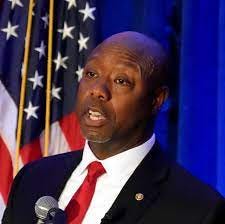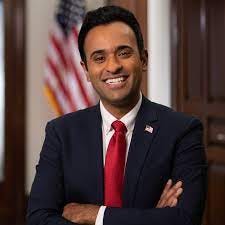Newt Minow died suddenly last weekend at age 97. I had planned to be in touch with him this month regarding bad news about the presidential debates. Beyond famously describing television as “a vast wasteland,” Newt arranged the first televised presidential debate, which took place in 1960 between Richard Nixon and John F. Kennedy; and he did more than anyone to establish the Commission on Presidential Debates. Now it looks as if his handwork is in jeopardy. Donald Trump has attacked the CPD as partisan (he broke precedent by pulling out of the second debate in 2020) and President Biden has little reason to go on stage with a man who lies every time he opens his mouth. So might 2024 be the first election since 1972 without debates? It sure looks that way. I’m relieved that my last conversation with Newt was not about that.
Two years ago, Newt sat for one of my first Old Goats interviews and he was amazingly sharp and perceptive, with funny stories about JFK and smart comments about current events. Long after I left Chicago, where he was a major player for seven decades, Newt continued to be a consistent source of wise counsel and warm friendship. He often emailed me with an encouraging word after an Old Goats column. I wrote this one just before I heard that Newt was gone. It’s on a subject that absorbed him.
Will the 2024 presidential contest be rigged? It’s a more complicated question than it seems. There’s a difference between legally rigging the campaign — the party rules that help determine who wins the nomination — and illegally rigging the election, which would wreck democracy. The former is nearly a fait accompli; the latter is less likely than it seemed through much of last year, though the dangers posed by artificial intelligence must be addressed.
As regular readers know, I’ve not wanted Biden to run for reelection, and the new poll detailing his weakness against Trump — while possibly an outlier — should be a cause of real concern for Democrats. But Biden has rearranged (OK, rigged) the primary schedule to his advantage and — even though this could weaken him in New Hampshire — will be the Democratic nominee if he doesn’t get sick.
On the other side, I’ve been skeptical that the Orange Menace is a prohibitive favorite for the Republican nomination. My increasingly threadbare argument has been that the winnowing process I’ve covered in every primary season from 1976 (when I was a college cub reporter) to 2012 would once again apply next year. Campaign after campaign, candidates in both parties dropped like flies after losing the Iowa Caucuses and the New Hampshire primary so that by Super Tuesday, only two or three viable aspirants remained. My theory was that 2016 on the Republican side was anomalous because Trump was so unimaginable as president that rivals who would have normally dropped out were able to convince donors that they should keep going. This let Trump divide and conquer.
My operating theory was that in 2024 we would revert to the mean —that Chris Sununu, Nikki Haley, Tim Scott, Chris Christie and Asa Hutchinson would drop out and give Ron DeSantis a clean one-on-one shot against Trump once the campaign moved to the big delegate-rich states. A lot of GOP donors agreed, and money flowed to DeSantis for months.
But I now think I was wrong. It’s not just that DeSantis makes Nixon seem like a warm and cuddly guy and that he has slipped in the polls. Those polls will bounce around and DeSantis has plenty of time to mount the kind of comeback that reporters love and will help fuel. No, the problem for Trump’s rivals is geographic and structural.
The geographic problem is that Sununu is the governor of New Hampshire and will likely win just enough favorite son votes in the Granite State for him to stay in for weeks afterward. And Haley, a former South Carolina governor, or, more likely, Scott, a popular South Carolina senator, will likely do well enough in that state’s primary to remain in contention. Meanwhile, entrepreneur Vivek Ramaswamy, who is smarter than the other GOP candidates and rich enough to self-finance, won’t likely drop out early on. That means at least four candidates to split the anti-Trump vote. Beyond that, the grievance voters who make up the Republican base seem to be concluding: why vote for a Trump-lite when we can have the real thing? And their concerns about the former president’s baggage recede further with every poll showing him doing well against (even leading) Biden.




Trump’s structural edge is that in 2019 he and his allies rigged party rules. With new incentives, 18 states moved to proportional rules that award delegates only to candidates who have received more than 20 percent of the vote. Advantage, Trump. And another 18 states, including New York, are now winner-take-all, which means Trump can win all delegates even if he only hangs on to his hardcore 30 percent. This summer, even more states are expected to change to winner-take-all GOP primaries.
It’s this prosaic stuff that makes Trump close to a lock on the nomination. Of course he will be essentially running from a courtroom, where he’ll spend months defending himself in the four separate cases (Stormy Daniels, Georgia, Mar-a-Lago and January 6th) that are likely to go to trial during an election year. That means 2024 will be both a boring Biden-Trump rematch and a wild, unpredictable ride.
The 2022 midterms bode well for democracy, with caveats. Thanks to a series of upgrades to election systems in the last decade, there were few reports of irregularities. The swing state GOP candidates for secretary of state — the scary authoritarians who made it clear they would not certify a presidential election won by a Democrat — all lost, and, miraculously, conceded. This means that it’s highly unlikely that any state will refuse to certify the results, which would have thrown the election into the House, where the Republican would win. That was the GOP authoritarian game plan and it’s all-but-dead.
There’s more good news afoot, courtesy of Moore vs. Harper, which J. Michael Luttig, the conservative former federal judge who delivered impassioned testimony before the January 6th Committee, calls “the single most important case for American democracy since the founding of the nation.” Luttig believes that based on the justices’ responses to oral arguments in December, the Supreme Court is almost certain to reject the independent state legislature theory advanced in the case — a new and dangerous constitutional argument that state legislatures have the power to regulate elections without interference from courts or election officials.
The high court won’t do anything about the gerrymandering that has undermined democracy in several states, but even the worst such maps have almost nothing to do with presidential elections.
I was also encouraged by survey data I heard this month when I took part in a conference on the 2024 election at Rice University’s Baker Institute for Public Policy. Both Georgia and Texas passed major legislation in 2021 that caused angina for Democrats worried about voter suppression. But it turns out that nine out of ten voters in both states said their 2022 voting experience was either excellent or good, with only minor racial disparities in the data. Of course lines at polling places will likely grow in a fevered presidential election and the continued GOP hostility to mail-in ballots could lead to abuses. But Georgia Secretary of State Brad Raffensperger, who was on a panel, can be counted on once again to accurately report the votes in Georgia, which will now speed up the vote-counting by pre-scanning absentee ballots.
Meanwhile, Wisconsin has a new state supreme court majority that will brook no nonsense, and Pennsylvania and Michigan, seem better defended. Arizona crazies jeered Raffensperger when he visited recently, but with Democrats holding the key statewide offices, it’ll be hard for lunatic Republicans to overturn a Biden victory there.
Even with this reassuring news, significant impediments remain. Republicans in several states are withdrawing from the Electronic Registration Information Center, a non-partisan consortium of election officials that helps assure that voters are only registered in one place. These anti-democracy forces don’t want cleaner, better elections; they want to wreck trust in the system. Eight years ago, Republicans loved absentee ballots; now, after Trump, they’ve convinced many of their voters to spurn them. This is self-defeating, of course. The GOP has put itself at a disadvantage in banking early votes and — by continuing to stress Election Day in-person voting — is putting the party at the mercy of the weather.
And the same malign forces trying to disqualify legitimate mail-in ballots continue to intimidate election officials. The story of Bill Gates, a Republican elected to the Maricopa County Board of Supervisors, is a reminder of what MAGA types are still doing to Republicans who won’t toe their anti-democracy line. Gates and his family received death threats and he suffers from PTSD.
What’s scary about artificial intelligence (AI) is its potential to spread misinformation about people like Gates. I was glad to see Gary Marcus, an influential AI entrepreneur and critic, argue that the government needs to require watermarking all AI content or we’ll face millions of pieces of misinformation sent out virtually for free that will overwhelm our election. Both parties — angry at the tech industry and worried about children — are talking about genuine AI regulation, with legislation quite possible next year.
David Becker, who runs the Center for Election Innovation & Research says that what most worries him about 2024 is the potential for political violence. Already, around one in five of poll workers around the county are resigning their posts out of fear of harassment. While Steve Bannon won’t likely make good on his threat to replace them with hardcore MAGA partisans, Democrats need to focus on getting their people into the trenches to help assure fair elections.
The best news for 2024 is that thousands of freedom-loving Democrats, independents and anti-Trump Republicans are bracing for a fight. And hundreds of public-spirited attorneys will stay busy in the courts, which have provided a welcome bulwark for democracy. The 2024 election will be a bumpy ride, and Trump will do everything he can to floor his clown car through the guardrails again. But I’m cautiously optimistic that they’ll hold.






The other hopeful possibility is that the next generation is becoming more politically involved. That young people turn out and vote. It’s their country. I read somewhere that abortion and guns is driving younger voters to become engaged. We will find out.
As Jonathan usually does, he has produced a fine analytical piece on the dynamics of the upcoming, now with us, 2024 presidential election.
Yet, unwittingly, like most journalists/pundits across the spectrum, as they opine on Trump’s candidacy he omits any mention of January 6: the only time in our country’s history’s a president tried to use the threat of violence, then actual violence which he did act to stop, in an attempt to remain in power.
I know Jon strongly believes that this is a very bad thing. But echoing an excellent piece today by S.V. Date in the Huffington Post,
https://www.huffpost.com/entry/donald-trump-coup-media_n_64505256e4b039ec4e867f2d,
where Date points out that mentioning Trump without mentioning this stark, unprecedented fact is akin to mentioning Neil Armstrong without saying anything about the moon.
The acid of Trump and Trumpism appears to have succeeded in corrupting, at least in part, our political journalism. It’s the water we swim in, where coup attempts and lies about legitimate elections become normalized, oh BTW’s… now let’s discuss Trump like any other candidate.
Trump attempted to shoot our democracy in broad day light. And nobody seems to care or think it matters. Or, if they do, they aren’t saying it out loud and often enough.